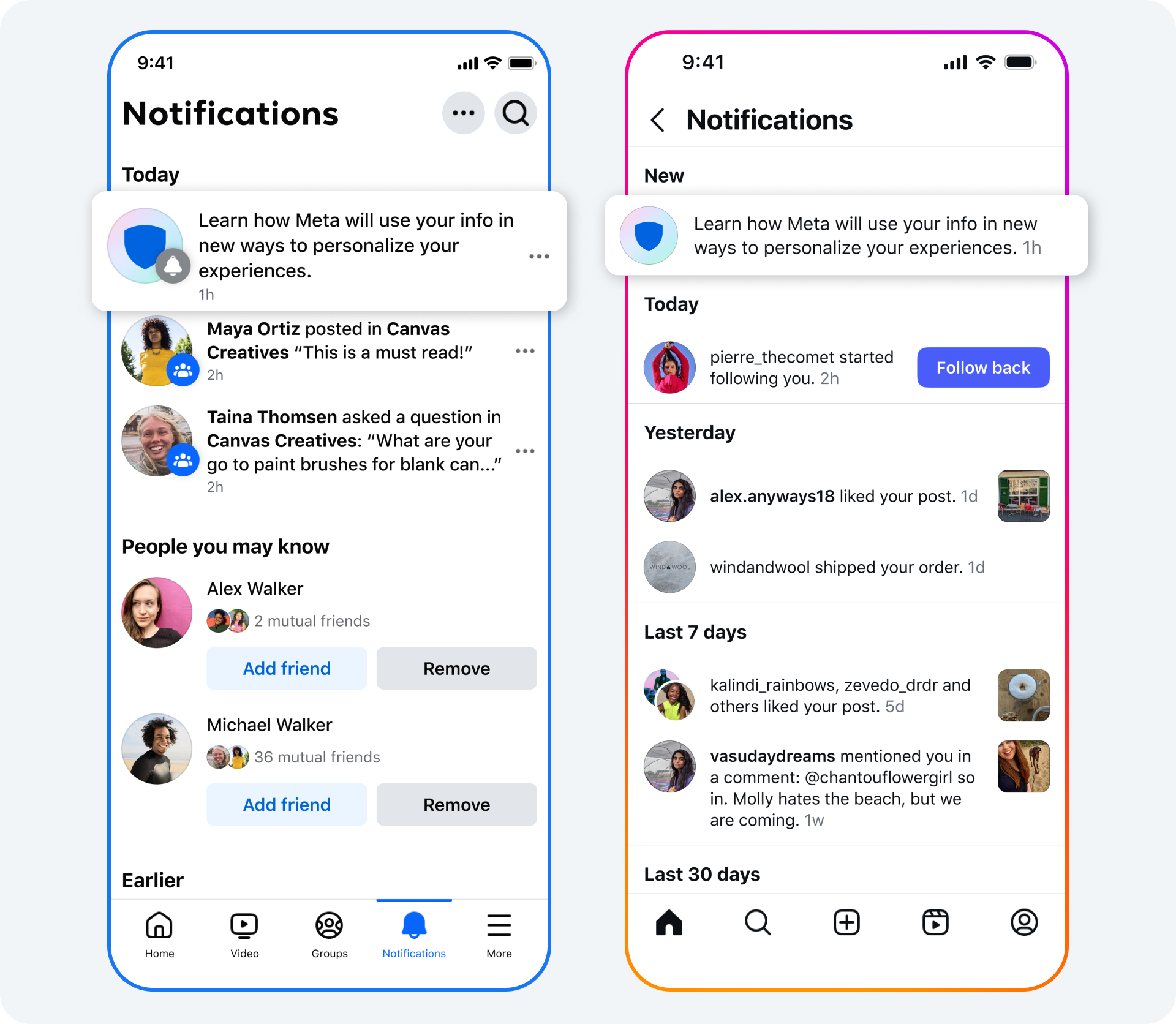Meta to use AI interactions to personalize ads
User conversations with Meta AI assistant will become new ad-targeting data points

Meta said that interactions with its generative AI tools will soon feed into its ad-targeting systems across its apps. In a blog post on Wednesday, the company announced that starting December 16, it will begin using what people say in conversations with Meta AI to determine what ads and content appear in their feeds. Users will begin to receive notifications about the change starting from October 7. However, there will not be an opt-out option.
This update applies only to people who use Meta AI, the chatbot available in Meta apps and through a standalone app. According to the company, the data will be added to other existing signals, such as likes, follows, and clicks, to provide targeted recommendations.
How the personalization will works
Meta said user interactions with AI, whether typed or spoken, will become another input that shapes feeds and ads. For example, if a person chats with Meta AI about planning a vacation, that information could be combined with their browsing activity to influence which travel-related ads or Reels appear in their feed. Similarly, a user asking Meta AI for fitness advice might later see ads from gyms or sports equipment brands.

The company said these interactions will also play a role in deciding what type of content shows up in feeds, including Reels and suggested posts. That means questions posed to Meta AI could directly shape the flow of a person’s social media experience, beyond just advertising.
Christy Harris, Meta’s privacy policy manager, explained that “people’s interactions simply are going to be another piece of the input that will inform the personalization of feeds and ads.”
What controls will users have?
The company said that while users cannot opt out of AI-driven ad targeting, they will still be able to manage their experience through Ads Preferences and feed controls. These tools allow people to hide ads they find irrelevant, adjust ad topics, or influence what content appears in feeds.
Meta also noted that certain sensitive categories will not be used in ad targeting. Conversations about religion, politics, sexual orientation, racial or ethnic origin, or trade union membership will not be factored into personalization.
Meta AI’s growing role
The change reflects Meta’s ongoing effort to expand the types of signals it uses to match ads with users. The company has long personalized ads using user activity, including posts, who they connect with, and their clicks. The use of AI conversations is the next step in that model.
This aligns with Meta’s AI ad strategy. CEO Mark Zuckerberg has emphasized personalization as a core focus for Meta AI. In May, he said the chatbot had reached 1 billion monthly active users across Facebook, Instagram, WhatsApp, and the standalone app. At the company’s annual shareholder meeting, Zuckerberg said the aim is to make Meta AI “the leading personal AI with an emphasis on personalization, voice conversations, and entertainment.”
The company already holds a dominant position in digital advertising, generating $47 billion in ad revenue last quarter alone, a year-over-year increase of more than 21%.
